While Armenia is grieving over the loss of the 44-day war against Azerbaijan, Russia and Turkey are celebrating another painful anniversary — the Treaty of Moscow of 1921 — which formalized the border between Armenia and Turkey, sealing the fate of historic Armenia.
The recent centennial celebration of the Treaty of Moscow, signed on March 16, 1921, began in the Turkish Parliament on March 15, with the participation of the Russian ambassador to Ankara, Alexei Yerkhov. The speaker of the Turkish Parliament, Mustafa Sentop, stated that “Russia is not only our neighbor, but also our friend and cooperation partner, on the way to the future.”
Read also
Russia returned the compliment by congratulating Turkey on the two countries’ century of diplomatic ties, adding, “Today the [bilateral relations] are experiencing a rise, steadily moving to the level of strategic partnership in a number of areas and serve as an important factor in strengthening regional stability and security.”
The celebration and congratulatory messages were occasioned on the centennial anniversary of the Treaty of Moscow of 1921, which was later finalized in Kars on October 13, 1921.
Russian and Turkish relations have historically improved at Armenia’s expense. The Treaty of Moscow finalized the current border between Armenia and Turkey, without Armenia’s participation. Later on, when Soviet rule was firmly installed in Armenia, the central government forced Armenia to sign the Kars Treaty.
As if international intrigues were not enough to disenfranchise the fledgling Republic of Armenia in its external relations, a domestic uprising in Yerevan denied Armenia its participation in the negotiations leading to the conclusion of the Treaty of Moscow.
Soviet rule was established in Armenia on December 2, 1920 and the new government had dispatched its delegation to participate in Moscow negotiations. While the delegation was on its way, an uprising took place by the Armenian Revolutionary Federation (Dashnaktstutyun) Party on February 18, 1921, and for almost a month and a half, the Salvation Committee headed by the last prime minister of independent Armenia, Simon Vratsian, took the helm of the government and wired Moscow that the delegation did not represent the revolutionary government.
In the meantime, it appealed to the Sublime Port of Turkey for help. Of course, the Turks did not lend any help and left the Armenians to slaughter each other. The civil strife cost an additional 20,000 lives before the Soviet regime was installed in Yerevan. Thus, the Soviet Russians and the Turks gave a raw deal to the Armenian side, in its absence, by signing the Moscow Treaty.
The Moscow Treaty repudiated all previous treaties signed before which had been unfavorable to Turkey. That understanding, by extension, nullified the Treaty of Sevres of August 10, 1920. The latter treaty, signed but not ratified two years after the end of World War I, recognized the independent Republic of Armenia and held the former Ottoman Empire responsible for and obligated to pay reparations for the Armenian Genocide.
With these two new treaties, Russia ceded the regions of Kars and Ardahan to Turkey. What is more painful is that the region of Surmalu, where Mt. Ararat is, was also given to Turkey, along with the ruins of the medieval capital of Ani. Batumi was also given to Georgia — actually to Ajaria — under conditions favorable to Turkey.
The Armenian region of Nakhichevan, still with a sizeable Armenian population, became the Autonomous Republic of Nakhichevan, under the protectorate of Soviet Azerbaijan, on condition that Azerbaijan could not transfer the region to a third party, meaning Armenia. Turkey and Russia became the guarantors of these arrangements.
After the collapse of the Soviet Union, Azerbaijan absorbed the Nakhichevan exclave as part of its sovereign territory, in breach of international law. All the countries and international organizations which recognize Nakhichevan as part of Azerbaijan have been contributing to the perpetuation of a compromise of international law.
In signing the Treaty of Friendship and Brotherhood, Mustafa Kemal duped Russian leader Lenin and his Bolshevik government, by pretending that his Milli (National) movement would lead Turkey to a system of proletarian rule. The treaties opened the floodgate of Russian support for Turkey. Food, money and tremendous amounts of armaments were donated to the Kemalist forces, to empower their war of liberation,” directed against the Armenians and Greeks.
Soviet Marshal Kliment Voroshilov, who later became president of the Presidium of the Soviet Union, served as a military advisor to Kemal. Also participating in Ataturk’s war of national liberation were Red Army commanders Mikhail Frunze and Semyon Aralov, which resulted in the expulsion of 150,000 Armenians from Cilicia and the defeat of Greek forces in Smyrna, who were driven to the sea, as well as the burning down of that city.
These political developments took place when two emerging powers were seeking international legitimacy, as neither was recognized as a sovereign country. Thus, both treaties are on shaky ground as far as international law is concerned.
When Mustafa Kemal signed the Treaty of Moscow, he was the head of the Grand National Assembly in Ankara, in a way a kind of opposition party to the government in Istanbul, headed by Sultan Mehmet VI, who was the only authorized party at the time to sign an international treaty on behalf of Turkey.
Lenin soon saw through Ataturk’s ruse, when Mahmut Soydan wrote in the Kemalist newspaper Hakimiyet-i-Milliya (National Sovereignty, April 25, 1921): “Those who believe that friendship between Russia and Turkey necessarily means the adoption of the Bolshevik system have a poor understating of political affairs.”
Thus, Ataturk thumbed his nose at Lenin.
Today, Russian President Vladimir Putin is also under the illusion that by beginning the construction of a second atomic power plant in Akkuyu, Turkey, and paving Turkey’s way to the atomic club, he is pulling Turkish President Recep Tayyip Erdogan away from NATO.
In November 2015, when a Sukhoi Su-24 Russian combat plane was shot down over the Syria-Turkey border, the Communist Party of Russia proposed a bill to abrogate the Treaty of Moscow; the Foreign Ministry considered the option for the moment. But on second thought, Moscow decided to deescalate the tension and keep the treaty as a bargaining chip over Turkey’s head.
Erdogan’s government is cognizant of the two treaties’ shaky bases and that is why he wanted to legitimize them by enticing Armenia to sign and approve the Protocols in 2009 in Zurich.
Fortunately, it was Ankara which shied away from taking the last step in ratifying the Protocols in deference to Baku.
Today, Ankara, believing it has the upper hand over Armenia, after the recent war, is dangling the same carrot in front of Armenia. President Erdogan has stated several times that Turkey will lift the blockade if “Armenia behaves.”
Yerevan should understand that under this “behavior” lies the recognition of the treaties of Moscow and Kars, finalizing and legalizing the border between the two countries.
Those two treaties may be null and void with the development of another international relationship.
Armenia becoming a sovereign country is not beholden to Moscow’s international obligations. Russia can no longer serve as a guarantor signatory of a third country’s border with its neighbor.
Turkey’s offer is infected with legal toxicity. Lifting the blockade, which can be reversed any time, is not commensurate with the historic concession of recognizing the finality of the current borders. Armenia has the soft power of refusing Turkey’s demand to legitimize the treaties and give away its right to pursue the international recognition of the Genocide.
It is time for Armenia to prudently consider its latent political power and use it judiciously.

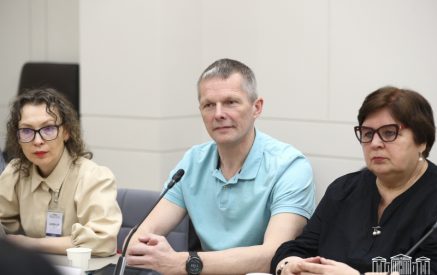
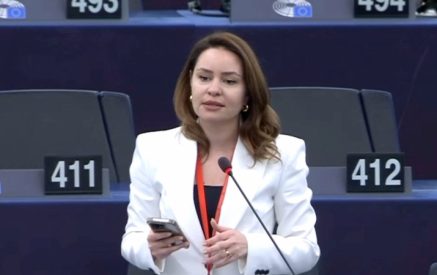
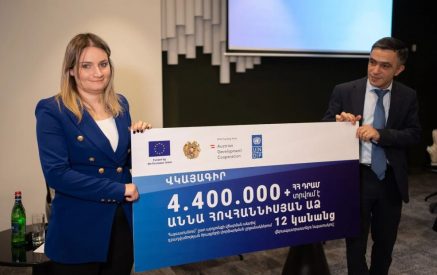
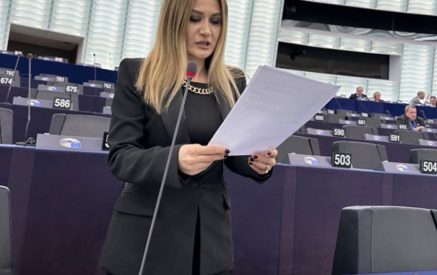
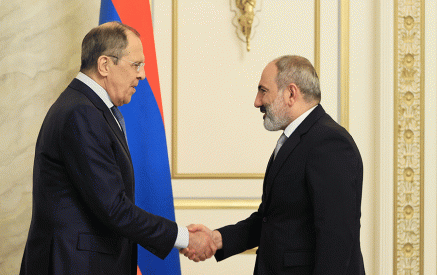
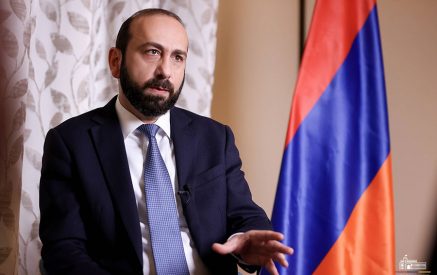

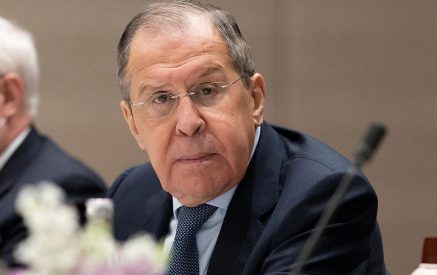

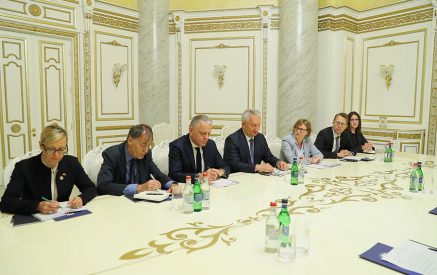
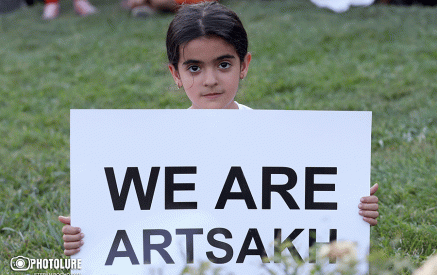
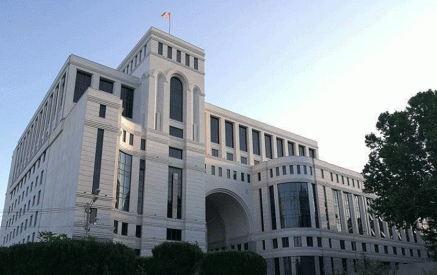
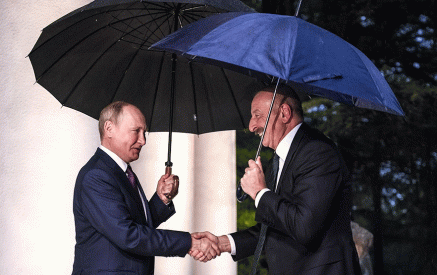

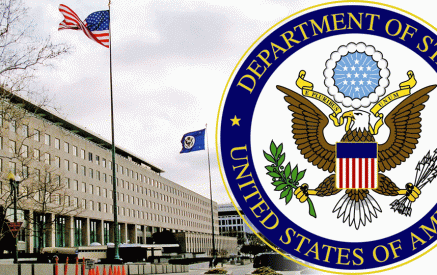
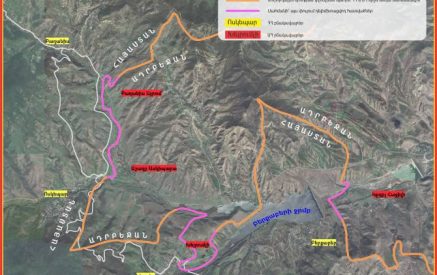


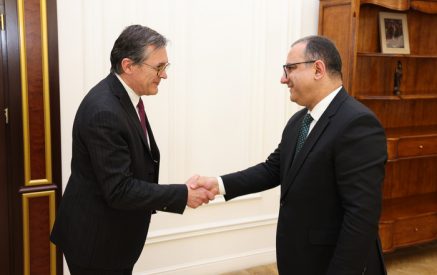
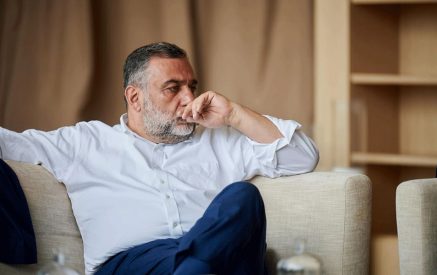
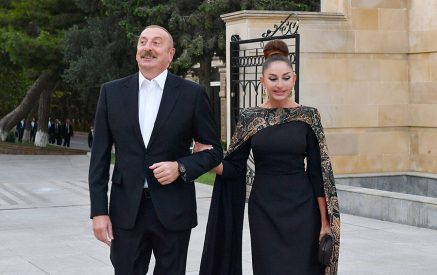

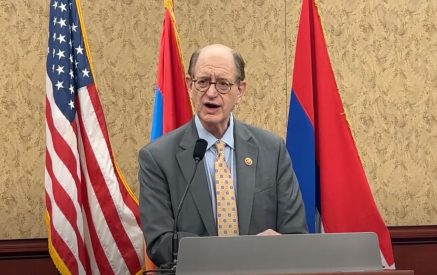
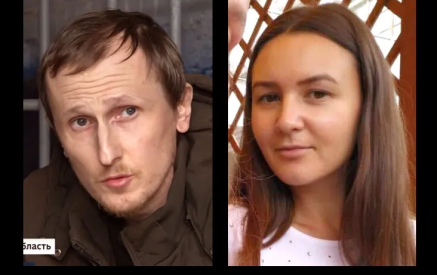
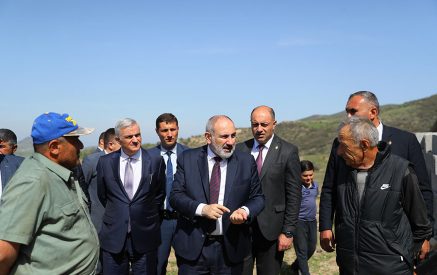
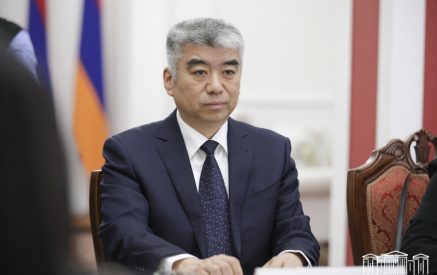
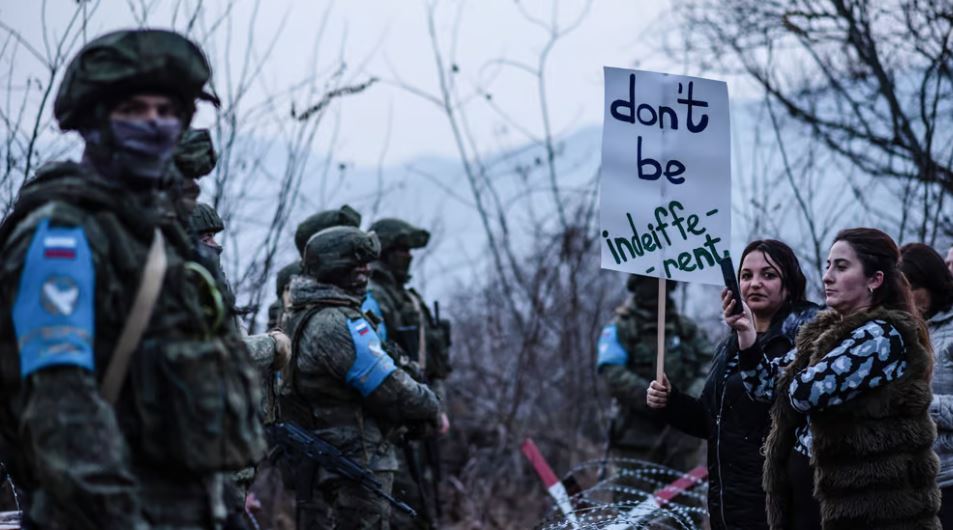
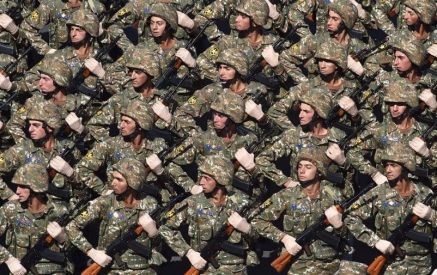
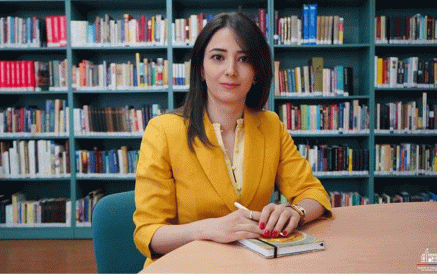
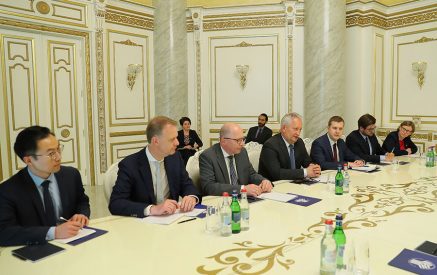
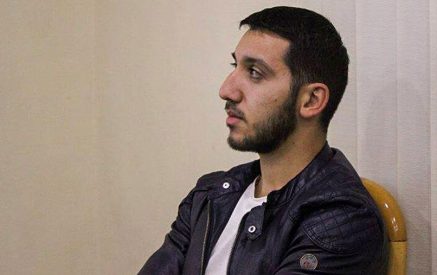
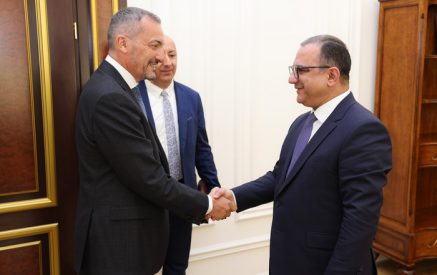
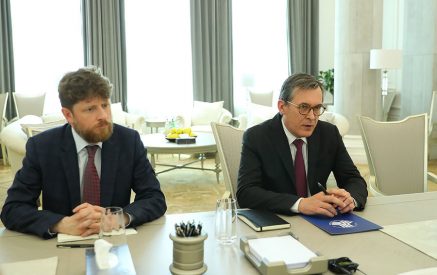
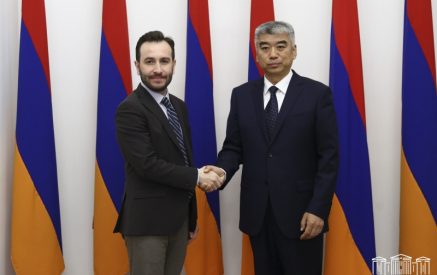
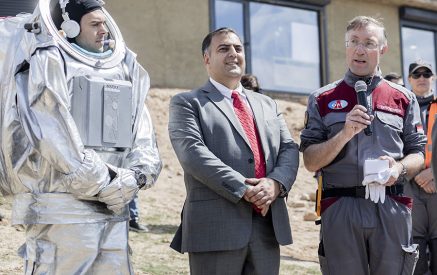
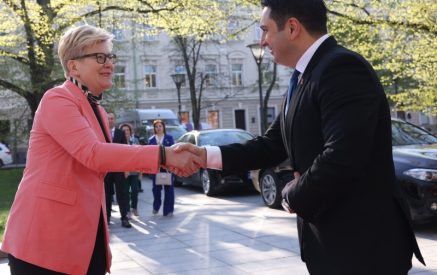
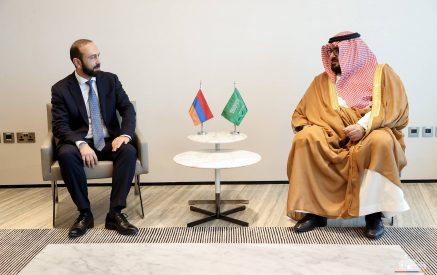



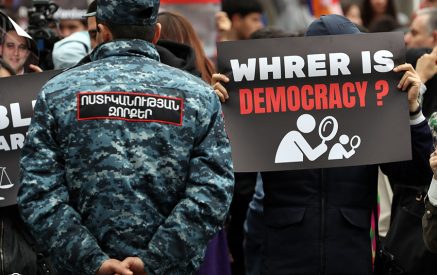
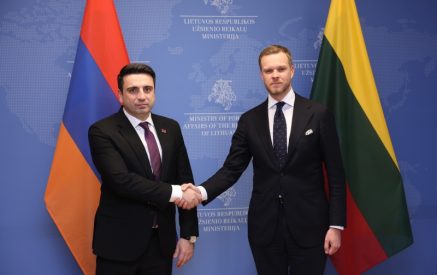


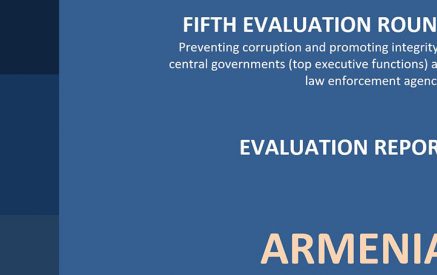
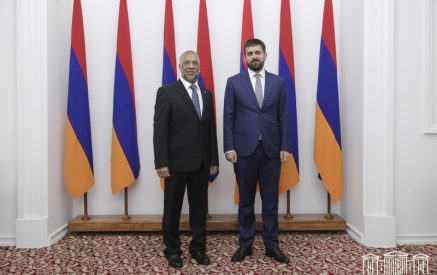
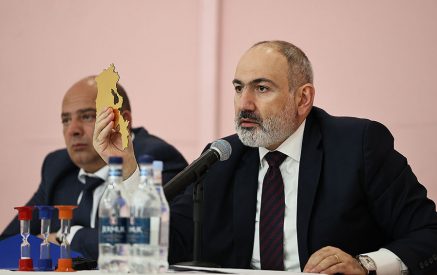
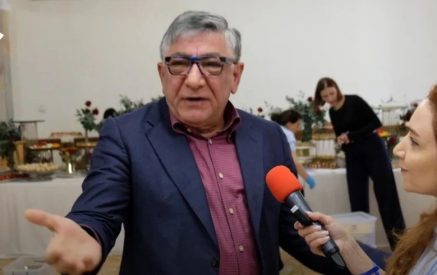
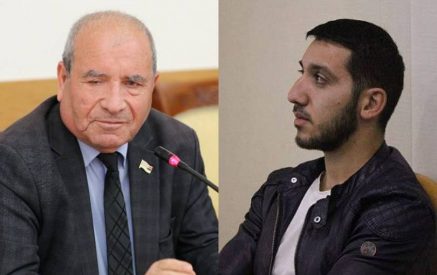
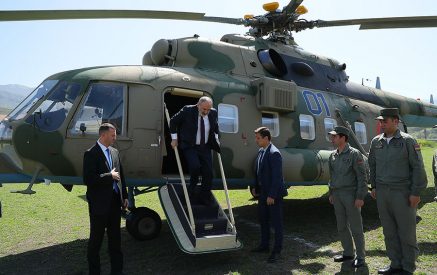
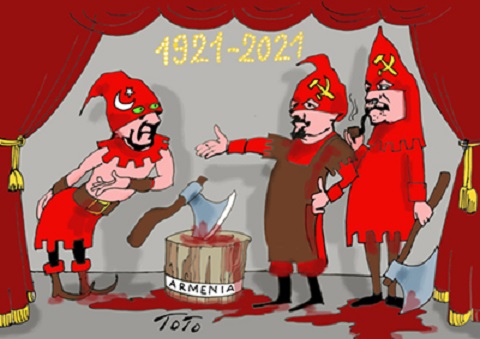
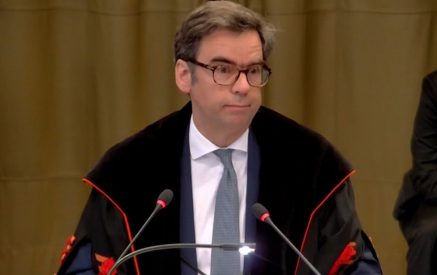
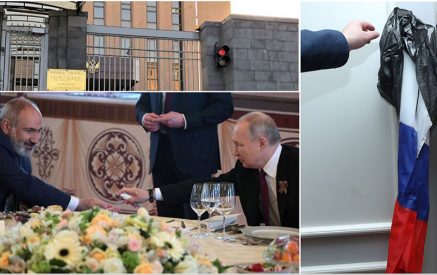
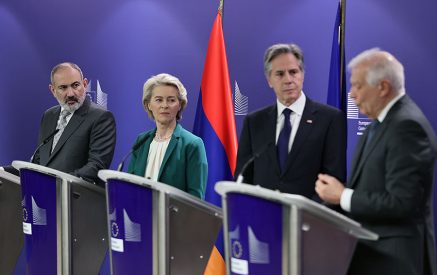
Russia could have stopped the 44 day war before it began on September 27, just as it stopped the war on November 9.
But Russia did nothing even in the months-long leadup to the war.
This was a Russian war against Armenians due to the fact that Putin had a temper tantrum. It made no sense from a geopolitical standpoint for Russia.
Now Russia is in a worse position and so is Armenia.
NATO likes the fact that Turkey and Azerbaijan won this war.
That puts Putin and NATO on the same side.